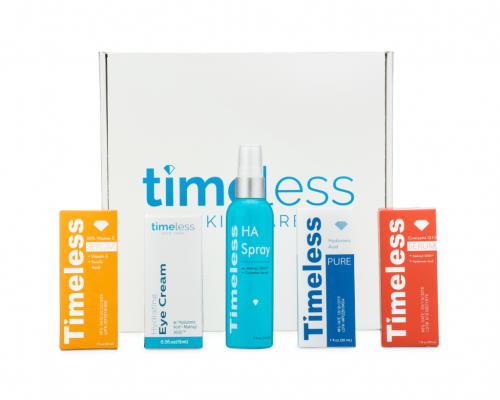How You Can Be Prepared for Cold and Flu Season
After the past seemingly endless months of living through a pandemic, you might not want to think about your immune health for a while. However, you don’t get a break yet. It’s almost time for the annual sniffling and sneezing to start again.
What can you do to reduce your chances of getting sick? Here is your 6-step guide to how you can be prepared for the cold and flu season.
Contents [hide]
1. Stock Up on Supplies
Prepare for the upcoming cold and flu season the way the squirrels do — by stockpiling a cache. It wouldn’t hurt to pick up a few boxes of disposable face masks or put your sewing machine back to work. This rule applies even if you qualify as fully vaccinated. The Centers for Disease Control and Prevention (CDC) recently updated their mask guidelines to recommend that people wear them indoors in areas with substantial or high transmission rates of COVID-19.
You should also learn the difference between sanitizing and disinfecting wipes. According to the CDC, sanitizing reduces germ numbers to safe levels, while disinfecting kills most bacteria and viruses. If you are medically fragile, you want to opt for the highest level of protection.
Additionally, you’ll want to keep hand sanitizer on your keychain or purse for those occasions where you can’t find a sink. If you’re medically fragile, you might want to wear gloves — if you can refrain from touching your mucus membranes while wearing them.
Finally, it’s always wise to stockpile items like zinc lozenges and tissues if you do get sick. You don’t want to have to break quarantine to go to the store after your throat grows scratchy or you get the sniffles.
2. Get Vaccinated
If you haven’t gotten your COVID-19 vaccine yet, please do so as soon as possible. The Delta variant is 50% more contagious than the original SARS-CoV-2 virus, but today’s vaccines protect against it if you get your “Fauci ouchie” before it mutates again.
Pay attention if you take medications that alter your immune function. Some people on immunosuppressant drugs have a decreased response to vaccination. You may need to discuss a third booster shot with your doctor and continue taking quarantine protections long after receiving your second dose.
3. Take Your Vitamins
While vitamin C won’t keep you from getting sick, it can decrease a cold’s duration if present in sufficient quantities when you first become infected. However, this water-soluble vitamin doesn’t linger in your system, so start your supplement regimen or add more foods like red peppers and citrus fruits to your diet before you get sick.
Likewise, zinc can reduce a cold’s duration by up to a day if you take it at the first sign of symptoms. You can find this mineral in nuts and seeds. As a bonus, these foods also contain high levels of magnesium and selenium, minerals that can ease symptoms of anxiety and depression.
4. Wash Your Hands
The number one way to prevent infectious disease spread is to maintain proper hygiene. Here’s a short checklist of times when you should wash your hands:
- After arriving at someone’s home: You don’t know what germs may linger on your paws — do your part to avoid leaving them on your loved one’s surfaces.
- After coughing or blowing your nose: Infectious diseases often spread through mucous membranes.
- After using the bathroom: This tip should go without saying, but please lather up.
- Before making or eating food: While the SARS-CoV-2 virus doesn’t seem to transmit through food, other germs can leave you with a nasty case of gastrointestinal distress.
- After playing with pets or coming in from outdoors; You should always wash up when you come back inside or after playing with animals. There is some evidence that pets can catch COVID-19.
5. Get Plenty of Exercise
Exercise reduces your chances of getting sick during the cold and flu season through various mechanisms. One way it works is by increasing your respiration rate, pushing bacteria and viruses out of your airways before they can settle in, replicate and make you sick.
Exercise also causes changes in antibodies and white blood cells, two vital parts of your body’s natural defense mechanism. The more you have, the better your chances of fighting off germs before you feel symptoms. Finally, working out increases your core body temperature, roasting bacteria and viruses similar to a fever.
6. Keep a Reasonable Bedtime
Your immune system performs many vital functions while you sleep. One of these involves the production of cytokines, proteins that play a crucial role in your response to inflammation and infection. A lack of sleep could make you more prone to getting sick.
Make your sleeping space sacred by eliminating electronic devices. The blue light emitted by screens can interfere with melatonin production, a vital sleep hormone. Use blackout curtains and white noise machines to create an environment conducive to rest and reserve this space for only sleep and sex.
Prepare Yourself for Cold and Flu Season With These Tips
You might feel fatigued from thinking about your health after the past several months. However, you can prepare yourself for the upcoming cold and flu season with the six simple above tips.




